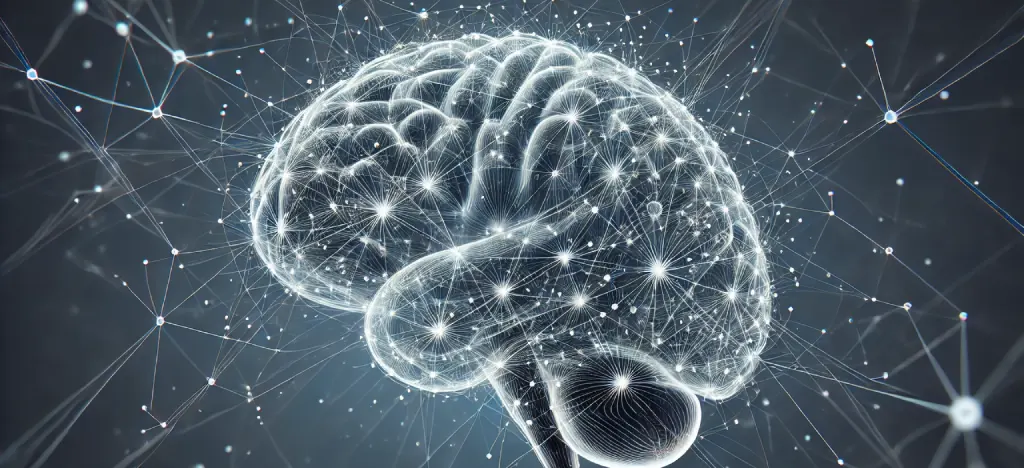We all know the power of music to move us. But what if the benefits went beyond simply listening? Recent studies reveal that actively playing a musical instrument can significantly enhance your cognitive abilities, mental health, and even physical well-being. This article explores the science behind these benefits, and why learning music is much more than just a creative pursuit; it's a powerful tool for brain training.
- Are there advantages to learning to play a musical instrument?
- 10 proven benefits to learning to play a musical instrument
- Learn a musical instrument for free
Are there advantages to learning to play a musical instrument?
Absolutely — and the research proves it.
Scientists have spent years studying how musical training affects the brain and body, and the results are nothing short of amazing.
✅ Better memory and focus
✅ Sharper problem-solving skills
✅ Lower stress levels
✅ Stronger coordination and motor skills
✅ Boosted creativity and confidence
✅ Even a stronger immune system!
And the best part? It’s never too late to start. Whether you’re a child, an adult, or even a senior, picking up an instrument literally rewires your brain for the better.
Let’s break it down.
10 proven benefits to learning to play a musical instrument
1. Playing music is a full-brain workout
 Ever wondered why musicians seem to have sharper focus, faster reflexes, and better memory? The secret lies in how music activates the brain.
Ever wondered why musicians seem to have sharper focus, faster reflexes, and better memory? The secret lies in how music activates the brain.
When you play an instrument, your brain isn’t just processing sound — it’s firing on all cylinders. A Penn Medicine study found that playing music engages every major part of the central nervous system, working both the left and right hemispheres of the brain simultaneously.
Hand-eye coordination: Playing an instrument requires each hand to move independently, engaging the peripheral nervous system for precise motor control.
Cognitive function: Reading sheet music, keeping rhythm, and anticipating the next note strengthens executive functions like planning and decision-making.
Multi-sensory stimulation: Unlike passive listening, playing an instrument combines visual, auditory, and emotional processing, making it a full-brain workout.
In short, music is one of the most powerful tools for keeping your brain active and adaptable — whether you're a child learning your first instrument or an adult keeping your mind sharp.
2. Musical training enhances cognitive functions throughout life
 Did you know that learning an instrument can actually change the structure of your brain? It’s true—musical training strengthens key cognitive functions like memory, attention, and problem-solving, and the effects last a lifetime.
Did you know that learning an instrument can actually change the structure of your brain? It’s true—musical training strengthens key cognitive functions like memory, attention, and problem-solving, and the effects last a lifetime.
A study published in Frontiers in Psychology found that musicians develop stronger neural connections that support cognitive performance. Playing an instrument encourages neuroplasticity — the brain’s ability to adapt and reorganize itself — leading to long-term improvements in mental flexibility and focus.
And here’s the best part: these benefits aren’t just for kids. While younger brains are more adaptable, research shows that adults and seniors who learn an instrument still experience cognitive gains. Musical training has been linked to slower cognitive decline in older adults, proving that it’s never too late to pick up an instrument.
3. Playing music improves mental health
 Feeling stressed? Overwhelmed? Picking up an instrument might be one of the most effective (and enjoyable) ways to boost your mental well-being.
Feeling stressed? Overwhelmed? Picking up an instrument might be one of the most effective (and enjoyable) ways to boost your mental well-being.
According to a Harvard Health Blog review, playing music has been shown to reduce symptoms of anxiety and depression. A systematic review and meta-analysis found that music-based activities can be just as effective as some traditional therapies in improving mood and emotional resilience.
Here’s why music is a powerful tool for mental health:
Reduces stress hormones – Playing an instrument lowers cortisol levels, helping your body relax.
Releases feel-good chemicals – Music boosts dopamine and serotonin, the same neurotransmitters linked to happiness..
Encourages mindfulness – Focusing on rhythm and melody keeps your mind in the present moment, reducing anxious thoughts.
More than just a hobby, music is a form of therapy — one that’s accessible to anyone, anytime. Whether you’re strumming a guitar, tapping on a piano, or even singing along to your favourite song, music has the power to heal.
4. Playing an instrument leads to better physical health
 Playing music isn't just good for your mind — it’s good for your body, too. Research reveals a link between playing music, reducing stress, and boosting the immune system.
Playing music isn't just good for your mind — it’s good for your body, too. Research reveals a link between playing music, reducing stress, and boosting the immune system.
So, how does playing an instrument translate to better physical health?
Lowers stress hormones – High stress weakens the immune system. Playing music reduces cortisol levels, helping the body recover and fight off illness.
Boosts immune response – Engaging in musical activities has been linked to increased production of antibodies, strengthening the body's defense mechanisms.
Regulates heart rate and blood pressure – Studies show that playing an instrument can slow the heart rate and promote relaxation, similar to meditation.
Enhances motor skills and coordination – Fine motor movements required in musical performance improve dexterity, reflexes, and muscle control.
💡 ARTMASTER TIP: Whether you're pressing piano keys, plucking guitar strings, or handling drumsticks, precise timing is key to developing motor skills. One of the best tools for refining coordination is a metronome. Here’s how to use a metronome effectively.
5. Enhances listening and hearing skills
 Musicians don’t just hear music—they listen in a way that most people don’t. Learning to play an instrument trains the brain to process sounds more accurately, leading to sharper listening and stronger hearing skills.
Musicians don’t just hear music—they listen in a way that most people don’t. Learning to play an instrument trains the brain to process sounds more accurately, leading to sharper listening and stronger hearing skills.
A study from Baycrest Health Sciences, published in the Journal of Neuroscience, found that musical training fine-tunes the brain’s auditory system, improving a person’s ability to detect subtle differences in pitch, tone, and rhythm.
Here’s how playing music improves hearing:
Boosts auditory processing – Musicians' brains become better at distinguishing between similar sounds, which can help in noisy environments.
Enhances speech recognition – Musical training improves speech perception, making it easier to understand conversations in crowded spaces.
Protects against age-related hearing loss – Studies suggest that lifelong musicians have stronger hearing abilities as they age compared to non-musicians.
Beyond music, these skills have real-world benefits, from better communication in social settings to potential applications in therapies for auditory processing disorders.
6. Playing music strengthens social bonds
 Music has a unique way of bringing people together, whether it’s through a jam session, a choir, or even just playing along with a friend. While the cognitive and physical benefits of music are well-documented, its impact on social connection and emotional well-being is just as powerful.
Music has a unique way of bringing people together, whether it’s through a jam session, a choir, or even just playing along with a friend. While the cognitive and physical benefits of music are well-documented, its impact on social connection and emotional well-being is just as powerful.
A study published in Frontiers in Psychology found that making music with others creates a strong sense of belonging and emotional connection.
Here’s why music is a social superpower:
Builds teamwork and communication skills – Playing in a band, orchestra, or ensemble requires listening, adapting, and coordinating with others, strengthening group dynamics.
Enhances emotional connection – Studies show that synchronized musical activities increase feelings of empathy and social bonding.
Boosts confidence in social settings – Performing music, whether in front of an audience or within a small group, improves self-expression and reduces social anxiety.
Encourages cultural exchange – Music allows people from different backgrounds to connect through a universal language, fostering cross-cultural appreciation.
From choir rehearsals to impromptu jam sessions, playing music builds friendships, enhances collaboration, and strengthens social ties—proving that music isn’t just heard, it’s felt together
7. Learning an instrument promotes discipline and time management
 Mastering an instrument takes more than just talent—it requires dedication, structure, and consistency. These are the same skills that translate into better discipline and time management in everyday life.
Mastering an instrument takes more than just talent—it requires dedication, structure, and consistency. These are the same skills that translate into better discipline and time management in everyday life.
Educational psychology research highlights how musical training develops key life skills by reinforcing structured learning habits. Practicing regularly, setting goals, and improving technique over time teaches musicians how to prioritize, focus, and manage their time effectively.
Here’s how learning music strengthens discipline:
Encourages goal setting – Musicians break down challenging pieces into smaller, achievable goals, reinforcing persistence.
Develops routine and consistency – Regular practice builds discipline—a skill that carries over into work, academics, and personal projects.
Enhances focus and concentration – Sticking to a structured practice schedule sharpens attention span and self-motivation.
Teaches delayed gratification – Progressing from basic to advanced techniques trains patience and perseverance.
These time management skills don’t just apply to music—they’re essential for success in any career or life goal.
8. Playing music enhances creativity
 Ever feel stuck in a rut when trying to think outside the box? Playing an instrument could be the key to unlocking your creative potential.
Ever feel stuck in a rut when trying to think outside the box? Playing an instrument could be the key to unlocking your creative potential.
While creativity is often associated with the arts, research shows that musical training strengthens the brain’s ability to think in new and innovative ways. Studies in educational and psychological research suggest that engaging with music encourages problem-solving, improvisation, and abstract thinking, all of which fuel creativity beyond the music room.
Here’s how music enhances creativity:
Encourages divergent thinking – Musicians often explore multiple solutions to the same challenge, a key trait of creative problem-solving.
Improves pattern recognition – Recognizing musical structures and composing melodies trains the brain to identify and create new patterns.
Strengthens neural flexibility – Playing an instrument rewires the brain for adaptability, helping musicians think outside the box in other areas of life.
Inspires self-expression – Writing songs, improvising, or even interpreting a piece in a unique way develops originality and artistic confidence.
Whether you’re a musician, a writer, a designer, or just looking to bring more creative thinking into your daily life, learning an instrument is one of the best ways to tap into your full creative potential.
💡 ARTMASTER TIP: Many of history’s greatest songwriters have used unexpected techniques to spark creativity. Find out more in our article - Inspirational techniques songwriters use to craft hits.
9. Develops self-esteem and confidence
 Nothing boosts confidence quite like learning a skill, overcoming challenges, and seeing progress—and playing music delivers all of that and more.
Nothing boosts confidence quite like learning a skill, overcoming challenges, and seeing progress—and playing music delivers all of that and more.
Mastering an instrument, whether it’s nailing a tricky chord progression or performing in front of an audience, builds self-esteem through achievement. Studies in educational psychology show that the process of learning and skill acquisition is directly linked to a stronger sense of self-worth and personal growth.
Here’s how playing music enhances confidence:
Encourages perseverance – Overcoming difficulties in practice teaches resilience, helping musicians tackle challenges head-on.
Builds a sense of accomplishment – Learning to play a full song or mastering a difficult technique provides a tangible sense of progress.
Increases comfort in social situations – Performing for others, even in small settings, reduces anxiety and enhances self-expression.
Strengthens identity and self-worth – Music allows for personal expression, helping musicians develop their own artistic voice.
Whether you’re playing for an audience or just for yourself, music has the power to transform self-doubt into self-confidence—one note at a time.
10. Music is a lifelong skill with lasting benefits
 Unlike many hobbies that fade over time, learning to play an instrument is a skill that stays with you for life—and the benefits don’t stop when the lessons do.
Unlike many hobbies that fade over time, learning to play an instrument is a skill that stays with you for life—and the benefits don’t stop when the lessons do.
According to research reviewed by ScienceDaily and the Baycrest Centre for Geriatric Care, musical training enhances cognitive health, auditory processing, and overall brain function well into older adulthood.
Here’s why playing music is a lifelong investment in your well-being:
Slows cognitive decline – Studies show that lifelong musicians have better memory, sharper attention, and stronger problem-solving abilities as they age.
Protects hearing and auditory skills – Musicians maintain superior hearing sensitivity and can distinguish sounds better, even in noisy environments.
Keeps the brain active – Learning new songs, techniques, or even a new instrument challenges the brain and promotes neuroplasticity.
Boosts emotional and social well-being – Playing music can help older adults stay socially engaged and mentally stimulated, reducing loneliness and depression.
Whether you’re picking up an instrument at 7 or 70, music is a lifelong companion that continues to enrich the mind, body, and soul — proving that it’s never too late to start.
💡 ARTMASTER TIP: A study found that one instrument in particular — the piano — appeared to have the most benefits. If you’re an absolute beginner, check out our popular Piano for Beginners course by David Bennett, pianist and YouTube educator with almost 1 million subscribers. Try it out for FREE with our 7-day trial.
Learn a musical instrument for free
Ready to experience the brain-boosting benefits of music for yourself? Explore our range of courses in guitar, bass, singing, music production, and more! Find out how learning music can benefit you.
Try Our FREE 7-Day Trial!


